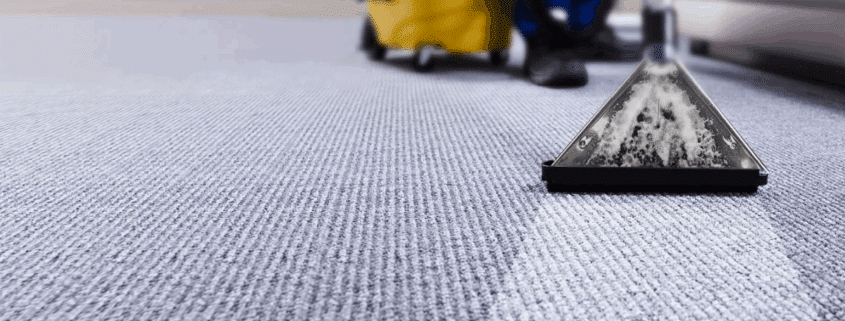Understanding Carpet Cleaning Certification
The Hidden Value of Professional Certifications
When it comes to maintaining your home’s carpets, the difference between amateur and professional results often comes down to one critical factor: certification. At Frogs Floor Care, we’ve been serving the Tampa Bay and Central Florida region since 1992, and we’ve seen firsthand how proper training and certification translate to superior cleaning results that protect your investment.
But what exactly does carpet cleaning certification mean for Lakeland homeowners? Why should you care about hiring certified technicians, and how does it impact the cleanliness, health, and longevity of your carpets? This comprehensive guide will answer these questions and more, helping you make informed decisions about your home’s carpet care.
What Is Carpet Cleaning Certification?
Carpet cleaning certification represents a professional’s commitment to industry standards, specialized training, and ethical business practices. Unlike many home service industries, carpet cleaning doesn’t always require mandatory licensing in Florida. This means the difference between a properly trained professional and someone with minimal knowledge can be significant.
The most recognized certification in the industry comes from the Institute of Inspection, Cleaning and Restoration Certification (IICRC). This non-profit organization sets the standards for carpet cleaning professionals and provides education on proper cleaning techniques, equipment usage, and carpet material identification.
The IICRC Certification Process
To become an IICRC certified carpet cleaning technician (CCT), professionals must:
- Complete an IICRC approved course taught by an authorized instructor
- Master both theoretical knowledge and practical cleaning techniques
- Pass a comprehensive examination covering cleaning chemistry, carpet materials, and proper procedures
- Commit to the IICRC Code of Ethics for cleaning professionals
- Maintain their certification through continuing education
These certification courses aren’t just quick online classes. The CCT course typically involves in-person instruction at an approved facility with hands-on training. Technicians learn how to properly clean various carpet materials, handle different soil types, and troubleshoot common cleaning challenges.
IICRC certified technicians are trained in:
- Carpet construction and fiber identification
- Chemistry of cleaning agents
- Proper equipment operation
- Stain removal techniques
- Water damage restoration
- Applied microbial remediation
- Health and safety protocols
- Environmental considerations
These certifications require ongoing education and renewal, ensuring technicians stay current with the latest industry developments and cleaning techniques.
Why Certification Matters for Lakeland Homeowners
Florida’s Unique Carpet Cleaning Challenges
Living in Lakeland and the broader Central Florida region presents specific challenges for carpet maintenance:
- High Humidity: Florida’s humidity creates ideal conditions for mold and mildew growth in carpets
- Year-Round Heat: Warmer temperatures accelerate bacterial growth in carpet fibers
- Sandy Soil: Tracked-in sand causes abrasive damage to carpet fibers
- Frequent Storms: Water intrusion risks during hurricane season can lead to carpet damage
IICRC certified carpet cleaners understand these regional challenges and are trained to address them with appropriate techniques and solutions. They know which cleaning methods work best for our specific climate conditions and how to prevent humidity-related issues from damaging your carpets.
Protecting Your Investment
Quality carpeting represents a significant investment in your home. The average Lakeland homeowner spends thousands of dollars on carpet installation, making proper maintenance essential for protecting this investment.
Certified carpet cleaners understand:
- How different carpet materials respond to various cleaning methods
- Which cleaning solutions are appropriate for specific carpet types
- How to clean effectively without damaging carpet backing or adhesives
- Proper drying techniques to prevent mold growth in Florida’s humid climate
As Frogs Floor Care’s carpet cleaning experts explain, “We cater our methods for each cleaning situation in order to maximize efficiency and achieve the best results possible. We are skilled in various methods such as hot water extraction (HWE) also known as ‘steam cleaning’, very low moisture (VLM) and encapsulation.”
This specialized knowledge helps extend your carpet’s lifespan, potentially saving you thousands in premature replacement costs.
Health and Safety Benefits
Beyond appearance, properly certified carpet cleaners prioritize your family’s health and safety:
- Allergen Removal: Certified technicians understand how to effectively remove allergens trapped in carpet fibers
- Safe Chemical Usage: Training includes proper dilution and application of cleaning agents
- Kid and Pet Safety: Knowledge of which products are safe for homes with children and pets
- Moisture Control: Proper training prevents over-wetting that can lead to mold growth
For Lakeland families with children, pets, or allergy sufferers, these health considerations are particularly important. Our carpet cleaning service emphasizes kid and pet-friendly cleaning solutions that effectively clean carpets without introducing harmful chemicals into your home.
Key IICRC Certifications for Carpet Cleaning Professionals
When hiring a carpet cleaning professional in Lakeland, these are the most important IICRC certifications to look for:
Core IICRC Certifications
The IICRC offers several certification courses relevant to carpet cleaning:
- Carpet Cleaning Technician (CCT): The foundational certification covering basic carpet cleaning principles, chemistry, and techniques. The CCT course teaches technicians how to identify carpet materials, select appropriate cleaning methods, and deliver consistent results.
- Commercial Carpet Maintenance Technician (CCMT): Specialized for commercial carpet care in light commercial settings, building service contractors, and high-traffic areas.
- Carpet Repair and Reinstallation Technician (RRT): For carpet repair services and proper installation techniques.
- Water Damage Restoration Technician (WRT): Critical for handling water-damaged carpets and preventing microbial growth.
- Applied Microbial Remediation Technician (AMRT): For addressing mold issues in carpets and upholstery.
- Upholstery and Fabric Cleaning Technician (UFT): Extends cleaning skills to furniture and upholstered items.
IICRC Certification Designations
As technicians complete multiple IICRC courses, they can earn special designations that demonstrate their comprehensive expertise:
- Journeyman Textile Cleaner: Requires multiple certifications and years of field experience
- Master Textile Cleaner: The highest designation for cleaning professionals, indicating mastery across multiple specialty areas
Manufacturer Certifications
Many carpet manufacturers offer their own certification programs to ensure proper care of their products:
- Mohawk: Certification for cleaning Mohawk carpet products
- Shaw: Shaw-approved cleaning methods certification
- Stainmaster: Certification for cleaning Stainmaster carpets
Chemical and Equipment Training
Reputable carpet cleaning companies also invest in training specific to the products and equipment they use:
- Green cleaning certification: For environmentally friendly cleaning methods
- Equipment-specific training: Certification on professional-grade equipment
- Specialty fabric care: Training for delicate or specialty carpet materials
At Frogs Floor Care, our technicians maintain multiple certifications through “attending various training seminars, expos and receiving class instruction to maintain certifications received through several accrediting trade associations,” as noted in our About Us page.
The Cost and Value of Certification for Cleaning Professionals
For carpet cleaning businesses, investing in IICRC certification provides significant value despite the initial course fee and ongoing education requirements:
Certification Investment
- Course Fees: The CCT course typically costs between $395-$595 depending on the facility and instructor
- Exam Fees: Additional fees apply for certification testing
- Continuing Education: Ongoing investment to maintain certification status
- Time Commitment: 2-3 days of in-person instruction plus study time
Business Benefits for Certified Cleaners
- Enhanced Credibility: Certification provides a competitive advantage in the marketplace
- Marketing Value: IICRC logos and credentials help attract quality customers
- Higher Profit Margins: Certified professionals can command premium pricing
- Reduced Liability: Proper training minimizes the risk of damage claims
- Better Business Bureau Recognition: Many BBB standards recognize IICRC certification
- Insurance Benefits: Some insurance providers offer better rates to certified companies
For carpet cleaning technicians looking to enhance their career prospects, IICRC certification opens doors to better employment opportunities, higher wages, and the potential to qualify for specialized cleaning roles.
Questions to Ask About Certification When Hiring a Carpet Cleaner
Before hiring a carpet cleaning service in Lakeland, consider asking these certification-related questions:
- What specific IICRC certifications do your technicians hold? (Look for CCT at minimum)
- How recently were these certifications renewed? (Should be within the past 2-3 years)
- Do you have certification specific to my carpet material? (Especially important for wool, specialty, or high-end carpets)
- How does your certification training address Florida’s humidity challenges? (Important for preventing mold issues)
- Can you provide proof of certification? (Reputable companies will happily share this information)
- What ongoing training do your technicians receive? (Indicates commitment to staying current with industry standards)
- Are your cleaning solutions safe for children and pets? (Certification should include knowledge of safe products)
- Does your company follow IICRC guidelines for cleaning procedures? (Ensures adherence to proper standards)
The Risks of Hiring Uncertified Carpet Cleaners
Choosing an uncertified carpet cleaner in Lakeland may save money initially, but often leads to these common problems:
Damage to Carpet Materials
Uncertified cleaners may:
- Use excessive agitation that damages carpet fibers
- Apply improper cleaning agents that cause discoloration
- Use too much moisture, leaving carpets wet for too long
- Set stains permanently through incorrect treatment methods
- Fail to properly clean different carpet materials according to their specific requirements
Health and Safety Concerns
Without proper training, uncertified cleaners might:
- Leave behind harmful chemical residues
- Fail to extract allergens and soil effectively
- Create conditions for microbial growth through improper drying
- Use toxic cleaning agents without appropriate ventilation
Ineffective Cleaning Results
Lack of certification often results in:
- Surface-level cleaning that doesn’t address deep soil
- Rapid resoiling due to residue left behind
- Stains that “mysteriously” reappear days after cleaning
- Uneven cleaning results across your carpet
As we explain in our article “Can Professional Carpet Cleaning Remove Stains?”, effective stain removal requires specialized knowledge: “Different types of stains and different carpet materials can affect the cleaning process. While professionals have a wide arsenal of cleaning solutions to address various stains, knowing the type of stain and the material of your carpet can help tailor the cleaning process for the best results.”
Voided Warranties
Many carpet manufacturers require professional cleaning by certified technicians to maintain warranty coverage. Using uncertified cleaners may void your carpet warranty, potentially costing thousands if you need to make a warranty claim.
How Certification Translates to Superior Cleaning Results
Certified carpet cleaners deliver better results through:
Customized Cleaning Approaches
Certified technicians understand that different carpets require different cleaning methods. At Frogs Floor Care, we emphasize that “each situation is unique so we tailor to each one while providing expert advice and options to achieve the best result possible.”
This might mean:
- Using low-moisture cleaning for humidity-sensitive carpets
- Applying specialized pre-treatments for specific stain types
- Adjusting water temperature based on carpet fiber type
- Selecting appropriate drying methods for Florida’s climate
Advanced Equipment Operation
Certification includes training on professional-grade equipment that delivers superior cleaning results:
- Proper pressure settings to clean deeply without damaging fibers
- Correct temperature control for effective cleaning without shrinkage
- Appropriate vacuum strength for maximum water extraction
- Precise application of cleaning agents
Scientific Understanding of Cleaning Chemistry
Certified technicians understand the science behind cleaning:
- pH balance considerations for different carpet fibers
- Chemical interactions between stains and cleaning solutions
- Proper dilution ratios for effective cleaning without residue
- Neutralization processes to prevent damage to carpet fibers
The IICRC’s Role in Setting Industry Standards
The IICRC doesn’t just certify individual technicians—it establishes the industry standards that guide professional carpet cleaning practices:
S100 Standard for Professional Carpet Cleaning
This comprehensive standard outlines:
- Proper cleaning procedures for different carpet types
- Guidelines for pre-inspection and testing
- Appropriate cleaning methods based on soil conditions
- Post-cleaning evaluation criteria
- Safety protocols for technicians and customers
Certified technicians are trained to follow these guidelines, ensuring consistent quality across the industry. When you hire an IICRC certified professional, you’re getting someone who adheres to established industry standards rather than making up their own methods.
How to Verify a Carpet Cleaner’s Certification
Before hiring a carpet cleaning service in Lakeland, take these steps to verify certification:
- Ask for certification numbers: Legitimate certifications have unique identification numbers
- Check the IICRC registry: Verify certification status through the IICRC’s online registry
- Request to see physical certificates: Professional companies keep copies of certifications
- Look for certification logos: Check their website, vehicles, and marketing materials for official certification logos
- Read reviews specifically mentioning certification: Previous customers often mention the professionalism of certified technicians
The Frogs Floor Care Certification Difference
At Frogs Floor Care, certification is central to our commitment to quality service. Since 1992, we’ve maintained rigorous training standards for our technicians, ensuring they have the knowledge and skills to address the unique carpet cleaning challenges faced by Lakeland homeowners.
Our certification advantage includes:
- Technicians certified in multiple cleaning methods
- Ongoing education to stay current with industry advancements
- Specialized training for Florida’s unique climate challenges
- Certification in kid and pet-safe cleaning solutions
- Training in water damage restoration for emergency situations
As our founder Geoffrey Odermatt emphasizes, “Industry techniques, methods and technology is ever changing and getting better so in order to stay current with these advancements Geoffrey attends various training seminars, expos and receives class instruction to maintain certifications he has received through several accrediting trade associations.”
How Certified Professionals Clean Carpets
When you hire a certified carpet cleaning technician, you can expect a systematic approach that follows IICRC guidelines:
1. Pre-Inspection and Testing
Certified technicians begin by:
- Identifying the carpet material and construction
- Testing for colorfastness and potential issues
- Noting pre-existing conditions and stains
- Developing a customized cleaning plan
2. Soil and Stain Pre-Treatment
Based on their training, technicians will:
- Apply appropriate pre-treatments for different soil types
- Use specialized solutions for specific stains
- Allow proper dwell time for chemicals to work effectively
- Address high-traffic areas with targeted treatments
3. Proper Cleaning Method Selection
Certified professionals choose the best method based on:
- Carpet material and construction
- Soil conditions and types
- Customer needs and time constraints
- Environmental considerations
Common methods include:
- Hot water extraction (steam cleaning)
- Low moisture cleaning
- Encapsulation
- Bonnet cleaning (for light commercial applications)
4. Thorough Extraction and Rinsing
Properly trained technicians:
- Use appropriate water temperature for the specific carpet
- Apply correct pressure settings
- Make methodical cleaning passes
- Ensure thorough soil removal
- Properly extract cleaning solutions
5. Post-Cleaning Treatment
Certification training includes:
- Proper grooming techniques
- Application of protectors when appropriate
- Expediting drying through air movement
- Final inspection procedures
This systematic approach demonstrates how certified technicians clean carpets more thoroughly and effectively than untrained cleaners.
Maintaining Your Carpet Between Professional Cleanings
Even with certified professional cleaning, proper maintenance between visits is essential for extending your carpet’s life:
Regular Maintenance Tips
- Vacuum at least twice weekly: Florida’s climate means more frequent vacuuming is necessary
- Address spills immediately: Blot (don’t rub) spills with a clean, white cloth
- Use entrance mats: Reduce tracked-in sand and soil that damages carpet fibers
- Control humidity: Use air conditioning or dehumidifiers to prevent moisture issues
- Schedule regular professional cleaning: Most carpet warranties require professional cleaning every 12-18 months
When to Call a Certified Professional
Contact a certified carpet cleaner when:
- Your carpet hasn’t been professionally cleaned in over a year
- You notice persistent stains or odors
- There’s visible soiling in high-traffic areas
- You’re concerned about allergens or indoor air quality
- After water intrusion events like flooding or major spills
The Certified Difference for Your Lakeland Home
Choosing a certified carpet cleaning professional is one of the most important decisions you can make for maintaining your home’s carpets. In Lakeland’s challenging climate, the specialized knowledge and skills that come with proper certification can mean the difference between carpets that last for years and those that need premature replacement.
At Frogs Floor Care, we’re proud of our certified technicians and their commitment to ongoing education and professional excellence. Our goal is to earn and maintain your trust by providing the highest quality carpet cleaning services backed by decades of experience and professional certification.
When you’re ready to experience the certified difference for your carpets, contact our team at 813-960-3764 or 863-430-1030. We’re here to help you protect your carpet investment and create a healthier, cleaner home environment for your family.






